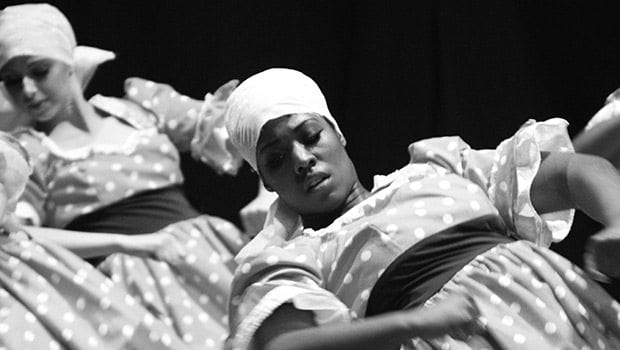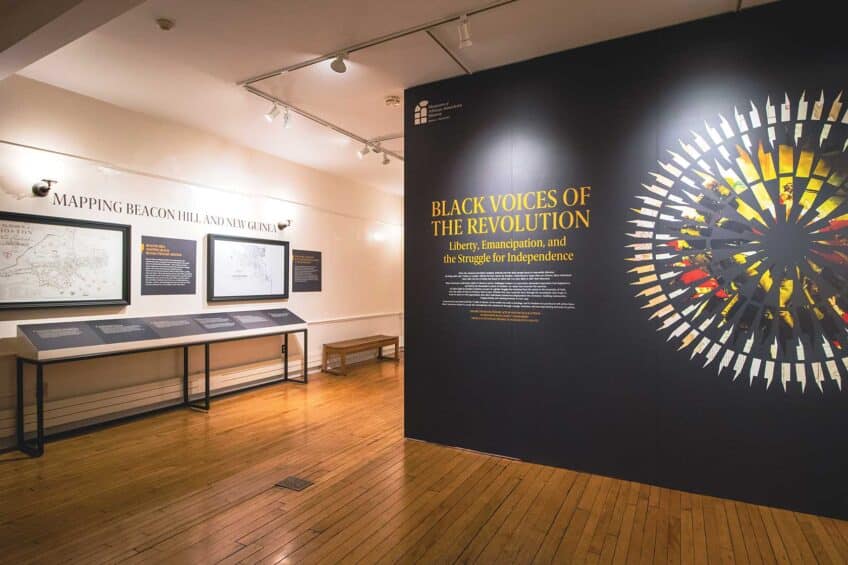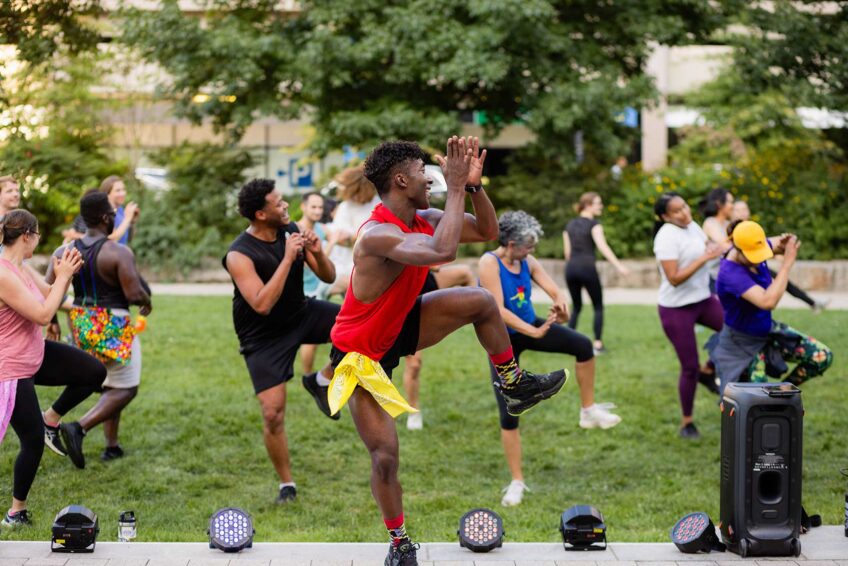
Captivated by dance and music since he was a child, Jean Appolon turned his love of movement into a reality. He first saw African-American dancer Lavinia Williams on television in Haiti when he was about six or seven years old. “I started seeing her on TV every Sunday teaching traditional class. I would fantasize about the class,” recalled Appolon.
Now, some 30 years later, Appolon is a renowned choreographer and master teacher based in Boston and Port-au-Prince, Haiti. He has performed with the North Star Ballet Company in Fairbanks, Alaska, the Black Door Company in Miami, and the Atlantic City Ballet Company.

Author: Mische Kang PhotoJean Appolon
Appolon is the co-founder and artistic director of Jean Appolon Expressions, a Boston-based contemporary Haitian dance company founded in 2011. In 2014 he was awarded a dance residency at the Boston Center for the Arts. In partnership with the BCA, his company is premiering its newest work Angaje later this month on Friday, March 27 and Saturday, March 28. [As of press time there are a few tickets available for March 27. March 28 is sold out.]
Angaje, which means “engaged” or “committed” in Haitian Creole, explores the themes of inequality, injustice and homophobia, set to music by legendary Haitian actress and singer Marie Clotilde “Toto” Bissainthe.
“It’s been a fight about how people survive, how people are trying to live, how mostly young gay men and women are trying to be in Haiti,” explained Appolon.
Choreographing courage
He hopes the piece will start a conversation in Boston on what it means to be gay in Haiti, and hopefully continue it back home.
“Haiti is so complex because sometimes if you do not have a system of government to stand with you, you are in trouble to talk about a subject that is very sensitive,” he said. “That is why I choreographed this ballet to really start talking about this issue and hopefully when we get to Haiti people can have a sense of what we’re trying to say.”
It wasn’t an easy path for Appolon to accomplish his dream. As a child, his parents were dead set against his watching programs that featured dance. Mainly it was that “they did not want me to be a dancer because they felt like it was very feminine, there wasn’t any money in it and they didn’t know anything about dance pretty much.”
He left the island in 1993 at the age of 17 — just two years after his father was murdered during a regime change — and moved to the states to live with his mother, who resided in Cambridge. During those two years in Haiti, dance was his outlet in dealing with his father’s murder.

Dancers with Jean Appolon Expressions.
“I used dance as therapy because I never really went any place to have therapy,” Appolon recalled.
Once in the U.S., his situation changed. His new home was located right across the street from The Dance Complex in Central Square and his new high school Cambridge Rindge and Latin School offered a dance program.
However, his mother still didn’t approve of his dancing. He had to sneak around to take classes at The Dance Complex and when his mother found out she warned him, “the day that you walk into that building again I will send you back to Haiti.” Appolon wasn’t going to be deterred: he was determined and pressed on.
Soon, his teacher Patrick Sylvain intervened and visited his mother and, according to Appolon, told her that “if you don’t let your son dance he might die, because he really wants to do this.” Upon completion of high school, Appolon was on his way to a new life.
In 1995, he received a one-year scholarship to attend the Harvard and Radcliffe Dance Program and followed that up with another scholarship to the Alvin Ailey American Dance Theater in New York (1996-1998). In 1998, Appolon attended the Joffrey American Ballet School where he graduated with a B.A. from a joint degree program offered by The New School in 2003.
On the Web
To learn more about Jean Appolon Expressions and the Summer Dance Institute visit
Back to roots
In 2006, he began conducting the Summer Dance Institute a free annual summer dance course at ENARTS (Ecole Nationale des Artes) in downtown Port-au-Prince, as a way of giving back “to the country that he knew and the country that he grew up in.”
The one-month program teaches Haitian folkloric dance to aspiring Haitian youth and adults who do not have regular access to dance training. Funding has come from The W.K. Kellogg Foundation, FOKAL, Choreart, and Haiti’s Ministry of Culture and Office of Ethnology, but additional sources of funding are always needed.
“We’re still using everything that we can to make people understand the value of what we’re doing in Haiti because there’s nothing like this in Haiti,” Appolon said.
Since the devastating earthquake of 2010, the need for dance and art has become increasingly more important, Appolon maintains.
“There are a lot of people who still today [are] really trying to find a way to heal from it. A lot of people haven’t healed from this,” he said.
Through an in-kind donation, The Summer Dance Institute has taken place in an open-air gazebo in Hôtel Oloffson on the island’s capital in 2013 and 2014, and will continue there for the forseeable future.
The long-term goal of JAE is “really to have an after-school program or an arts school in Haiti,” said Appolon. “It’s our passion to be in Haiti more than one month because in one month you just teach a kid a few steps, and they go and next year you come back. That doesn’t really last. So, we would really like to put our feet in Haiti where we can train kids for seven, eight months out of the year and know that we are creating productive citizens.”






